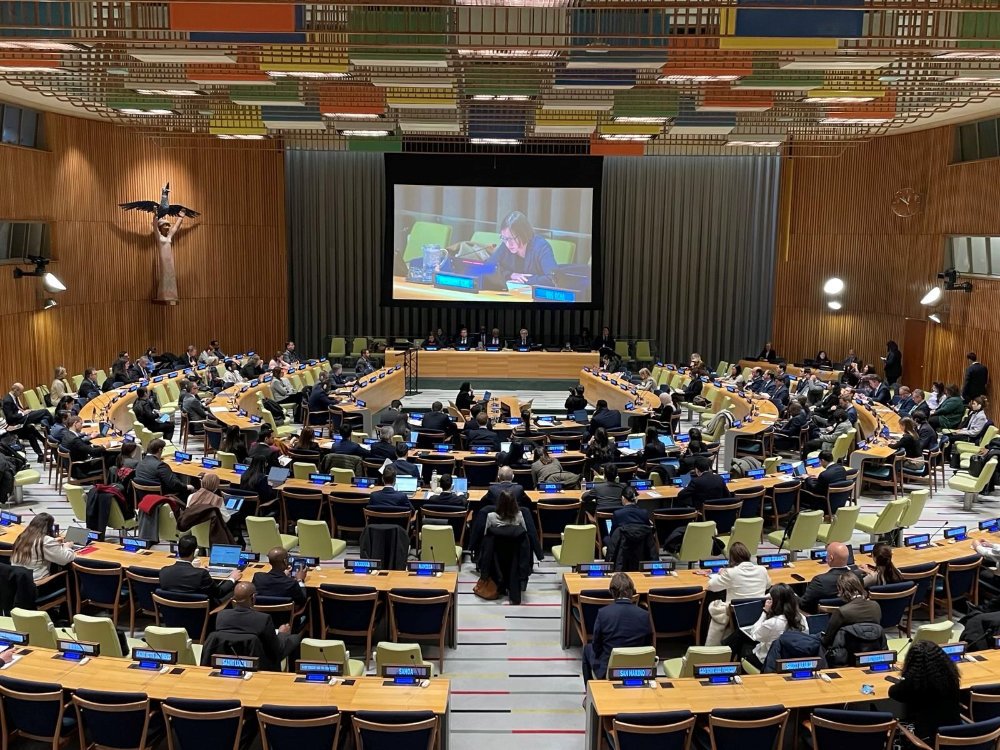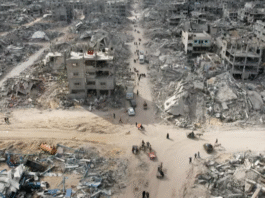A Call to Action: The State of International Humanitarian Law Today
International humanitarian law (IHL), designed to protect individuals during armed conflicts, faces unprecedented challenges in today’s global landscape. Despite its crucial purpose, adherence to these legal principles has diminished significantly, particularly in recent years marked by escalating violence and widespread disregard for civilian rights. Conflicts in regions such as Syria, Yemen, and Afghanistan have underscored the fragility of IHL, with reports detailing rampant violations, including targeting of non-combatants and denial of humanitarian assistance. These developments have eroded the fundamental tenets of IHL, leading to dire consequences for innocent populations.
Civilians are increasingly bearing the brunt of conflicts as states and non-state actors alike flout established norms. The deliberate attack on civilian infrastructure, such as hospitals and schools, not only violates IHL but also perpetuates cycles of suffering and instability. Furthermore, these actions often result in large-scale displacement, further complicating humanitarian efforts. The implications of such violations extend beyond immediate suffering; they have lasting impacts on societal structures and the rule of law, ultimately undermining the principles upon which IHL rests.
This state of affairs calls for a robust, global response that emphasizes the need for accountability and adherence to IHL. The erosion of such norms necessitates not only national actions but also collective efforts at the international level. States and international organizations must reinforce their commitment to uphold IHL through legal frameworks, diplomacy, and proactive measures to protect civilians. Strengthening these laws requires a multifaceted approach involving advocacy, education, and the reinforcement of humanitarian principles globally. Without decisive action, the sanctity of international humanitarian law—and the rights it safeguards for vulnerable populations—stands at grave risk, compelling us to prioritize its protection and enforcement as an urgent necessity.
Civilians in the Crossfire: The Human Cost of Conflict
The impact of armed conflict on civilian populations is both profound and damaging, often manifesting itself in various tragic forms. According to the United Nations, over 70 million individuals are forcibly displaced due to conflict, violence, and human rights violations, with many subjected to dire humanitarian conditions. These staggering statistics mask the personal stories of loss and suffering experienced by those caught in the crossfire. For instance, countless families are torn apart, as individuals—whether children, women, or the elderly—are either killed or separated during hostilities.
Personal accounts reveal the harrowing realities faced by civilian populations. A recent report from a humanitarian organization outlines the experiences of a mother who lost her two children during an airstrike in a conflict-ridden area. Her story provides a chilling reminder that behind every statistic lies a human life—a life filled with dreams and aspirations suddenly extinguished by violence. Furthermore, survivors often contend with severe psychological trauma, facing long-lasting mental health issues that may never receive attention amid the chaos of war.
The consequences extend beyond immediate physical harm. Access to essential services such as healthcare, education, and clean water becomes severely restricted, compounding suffering. Disease and malnutrition rise as humanitarian aid faces blockades or is intentionally denied, illustrating a blatant disregard for the principles of international humanitarian law. Civilians are often left vulnerable, at the mercy of forces engaged in conflicts that regard them as collateral damage rather than as individuals deserving of dignity and protection.
In light of these realities, it becomes evident that the situation transcends mere legal obligations. The violations of humanitarian law highlight an urgent need for collective action to uphold the rights and safeguard the lives of civilians embroiled in conflict. Recognizing the human cost of warfare is vital to reinforce the responsibilities of all parties involved in violent disputes.
The Global Initiative: A Unified Response to Restore Humanitarian Law
The preservation and effective implementation of International Humanitarian Law (IHL) is critical in contemporary conflicts, and a global initiative has been launched to galvanize support for this cause. This initiative focuses on fostering political commitment among states and relevant stakeholders to engage in actions that uphold IHL. Central to this effort is the role of the International Committee of the Red Cross (ICRC), which has been instrumental in advocating for compliance with humanitarian principles. The ICRC not only provides direct assistance in humanitarian crises but also engages in dialogue with governments and non-state actors to promote adherence to IHL.
This initiative sets forth clear objectives that include raising awareness of IHL’s significance, enhancing cooperation among states, and ensuring accountability for violations. Efforts are directed towards mobilizing resources and creating platforms where governments, international organizations, and civil society can collaborate effectively. By drawing attention to scenarios where obligations under IHL are not met, this initiative seeks to inspire a collective response that reinforces international commitment to humanitarian standards.
Strategies employed by this global endeavor comprise advocacy campaigns, educational programs, and stakeholder dialogues that emphasize the necessity of protecting civilians and ensuring humane treatment in armed conflicts. Moreover, the initiative highlights the importance of integrating legal mandates into practical measures that resonate within communities affected by conflict. This integration is essential to bridging the gap between legal standards and humanitarian practices, thereby translating principles into actions that can alleviate human suffering.
The overall importance of this global initiative cannot be overstated. It not only promotes legal and moral obligations but also serves as a means to strengthen solidarity among nations, urging each participant to acknowledge their role in fostering peace and humanity. By uniting various stakeholders, the initiative establishes a formidable platform for restoring faith in IHL, ensuring that humanitarian assistance reaches those in dire need.
Moving Forward: Steps for Individuals and Nations to Support Humanitarian Efforts
Promoting and upholding international humanitarian law is vital in ensuring the protection of human rights during conflicts and crises. Both individuals and nations can take meaningful actions to support humanitarian efforts and reinforce the significance of these laws in safeguarding vulnerable populations. Understanding one’s role in promoting humanitarian efforts empowers individuals to create impactful change within their communities and on a global scale.
Individuals can begin by educating themselves and others about international humanitarian laws and the fundamental principles that guide these statutes. This could be accomplished through reading literature, participating in workshops, or following credible sources that focus on humanitarian issues. By raising awareness in social circles, individuals can ignite conversations about the importance of humanitarian protection and encourage collective action to uphold these principles.
Advocacy is another powerful tool for individuals aiming to support humanitarian efforts. Writing to local representatives, participating in advocacy campaigns, and supporting organizations that promote humanitarian law can amplify voices calling for adherence to these essential standards. Individuals are encouraged to engage in social media campaigns or community events that focus on humanitarian issues, thus catalyzing a broader public discourse around the significance of these laws.
Nations play a crucial role in supporting humanitarian efforts as they are obligated to follow and promote international humanitarian law. Governments can ensure compliance through various means, including incorporating these laws into national legislation, providing training for military personnel, and participating in international coalitions aimed at addressing humanitarian crises. They can also allocate resources to support humanitarian organizations, enabling them to deliver aid effectively in conflict-stricken regions.
Collaboration between individuals and nations can foster a robust network of support for humanitarian efforts, reinforcing the community’s resilience in the face of calamity. The collective commitment to understanding and advocating for the principles of international humanitarian law can result in impactful changes, protecting those most in need both locally and globally.




